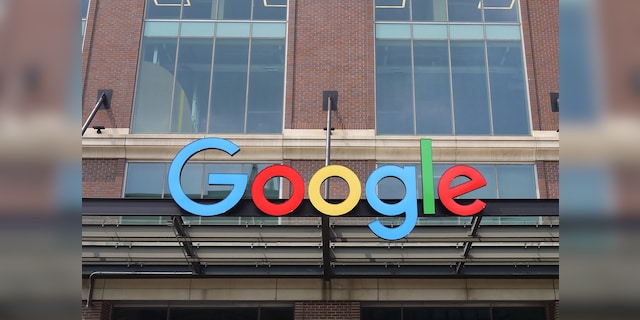Google is facing a $5 billion lawsuit over complaints that its Chrome browser tracks users even when using “Incognito” mode.
A U.S. District judge ruled last week that a class-action lawsuit, filed in June 2020, against Google’s Incognito tracking mode can go forward after Google failed to get the lawsuit thrown out.
The crux of the lawsuit contends that when a user opts for the Chrome browser’s Incognito mode, Google continues to track user activity. This, the lawsuit contends, violates federal wiretap laws.
Underlying the legal action is the contention that if you choose Incognito mode the assumption is that browsing is kept private.

Google is facing a $5 billion lawsuit over complaints that its Chrome browser tracks users even when using “Incognito” mode.
(Getty Images)
“We strongly dispute these claims and we will defend ourselves vigorously against them,” José Castañeda, a Google spokesperson, told Fox News in a statement.
“Incognito mode in Chrome gives you the choice to browse the internet without your activity being saved to your browser or device. As we clearly state each time you open a new incognito tab, websites might be able to collect information about your browsing activity during your session,” Google’s Castañeda said.
The lawsuit goes on to state: “Through its pervasive data tracking business, Google knows who your friends are, what your hobbies are, what you like to eat, what movies you watch, where and when you like to shop, what your favorite vacation destinations are, what your favorite color is, and even the most intimate and potentially embarrassing things you browse on the internet—regardless of whether you follow Google’s advice to keep your activities ‘private.’”
Google tracking is done via GoogleAnalytics, Google Ad Manager, and other application and website plug-ins such as Google applications on mobile devices and the Google Sign-In button for websites, the lawsuit states.
3 AMAZON PRIVACY SETTINGS YOU NEED TO CHANGE RIGHT NOW
What Incognito mode really is and isn’t:
When you select Incognito mode on Google’s browser, none of your browsing history, cookies and site data, or information entered in forms are saved on your device, according to a Google Chrome help page covering Incognito mode.
As a result, your activity doesn’t show up in your Chrome browser history and websites can’t identify you, as long as you don’t sign in, Google says.

The crux of the lawsuit contends that when a user opts for the Chrome browser’s Incognito mode, Google continues to track user activity.
But Google also explains what Incognito mode doesn’t do.
It will not prevent a website from identifying you if you sign in. “If you sign in to any website in Incognito mode, that site will know that you’re the one browsing and can keep track of your activities from that moment on,” the Google help page says.
Google goes on to explain that Incognito mode will not prevent your activity or location from being visible to the “websites you visit, your school, employer, or your Internet Service provider.”
Also, it ill not prevent the websites you visit from serving ads based on your activity during an Incognito session.
CLICK HERE TO GET THE FOX NEWS APP
“What that means is, when browsers log into Facebook, Gmail or anywhere else using a private window, these websites actually know about it,” Daniel Markuson, digital privacy expert at virtual private network service provider NordVPN, told Fox News.
“And it will not protect you from being monitored by your ISP, marketers, and even the government if they decide to spy on you,” Markuson said.
“We believe that the question should be…about Google’s ability and willingness to provide people with tools to actually rule over their privacy. With Google all around us, it is next to impossible for anyone to figure out which Chrome browser, Google account or Android phone privacy settings one needs to tinker [with] to achieve [that] goal,” Vykintas Maknickas, product strategist at NordVPN, told Fox News.